Specialized Module Courses
Area
Digital Transformation
- face-to-face: students attend on campus
- hybrid: T4EU students attend online, home students attend on campus
- blended: the course is largely online (for all students), but there may be face-to-face elements, for instance for project work, at the mobility week or a final exam
- basic course (BC): knowledge in area of expertise
- application course (AC): students apply knowledge to gain experience and generate societal transformative impact in limited scope
subject title
Permutation groups
Content:
- group action.
- orbits and stabilizers.
- extensions to multiply transitive groups.
- primitivity and imprimitivity.
- permutation groups and graphs.
- graph automorphisms, vertex-transitive and Cayley graphs.
- graphs with a chosen degree of symmetry.
- permutation groups and designs.
Lecturer: Istvan Kovacs
Number of places for T4EU students: 15.
University of Primorska | ECTS: 6 | BC | Modality: hybrid Language: English
Start date: 1.10.2024 | End date: 17.1.2025 | Time: To Be Confirmed
subject title
Galois Theory
Content:
- Classical formulas
- Polynomials and field theory
- Fundamental theorem on symmetric polynomials and discriminants
- Roots of unity and cyclotomic polynomials
- Solvability by radicals
- Basic elements of Galois theory. Automorphisms. Galois extensions.
- Fundamental theorem of Galois theory.
- Classical theorems by Abel, Galois, Gauss, Kronecker, Lagrange, and Ruffini.
- Applications and examples.
Lecturer: Michel Lavrauw
Number of places for T4EU students: 15.
University of Primorska | ECTS: 6 | BC | Modality: hybrid Language: English
Start date: 1.10.2024 | End date: 17.1.2025 | Time: To Be Confirmed
subject title
Cryptography and Computer Safety
Content:
- Classical ciphers and historical development
- Fiestel’s cipher and AES (Advanced Encryption Standard)
- Finite fields and Extended Euclidean algorithm
- Public crypto systems, one-way functions and related problems from number theory (testing primality, factorization of integers, discrete logarithm problem)
- Hash functions and message integrity (authentication)
- Key exchange protocols and identification protocols
- Pseudo random number generator
- Other protocols (flipping a coin over the telephone, mental poker, secret sharing, verification codes, visual cryptography, zero knowledge proofs)
- Public key infrastructure (PKI), certificate authority (CA)
- Broader view on cryptography – security of information and network security
Lecturer: Rene Rodriguez Aldama
Number of places for T4EU students: 15.
University of Primorska | ECTS: 6 | BC | Modality: hybrid Language: English
Start date: 1.10.2024 | End date: 17.1.2025 | Time: To Be Confirmed
subject title
Financial Topics in English
This course discusses money, its roles and functions, from a microeconomic and macroeconomic perspective.
The most important topics tackled by the course involve:
- Money demand and money supply along with the money creation process and the money multiplier
- Models of monetary policy, with a special attention to the role of interest rates and inflation targeting
- Transmission mechanisms of monetary policy and the effectiveness of different instruments
- Euroarea monetary policy and its specificities.
Lecturer: Ana Grdović Gnip
Number of places for T4EU students: 15.
University of Primorska | ECTS: 6 | BC | Modality: hybrid Language: English
Start date: 1.10.2024 | End date: 17.1.2025 | Time: To Be Confirmed
subject title
Artificial Intelligence
The course relates to ethical, social and legal implications of AI. It challenges the concept of AI by examining its occurrence in domestic, including EU, and international frameworks. Specific research areas cover AI-related concepts, applications across industries and states; environmental consequences of AI; ethics of AI – how far should we trust technology; discriminatory algorithms; data protection law; cybersecurity; AI on trial; weaponising AI; needs for international, EU and domestic regulations. The course encourages students to conduct an independent analysis of voluntary reading material and critically evaluate discussed matters, to research additional data and to clarify arguments and possible answers to the problems posed by machine learning tools.
Lecturer: Dominika Iwan-Sojka
(This course can also be found in the Module “European History, Politics, Culture, Law, Economy”)
University of Silesia | ECTS: 3 | BC | Modality: online | Language: English/Polish | Start date: 1.10.2024 | End date: 16.1.2025 | Time: To Be Confirmed















